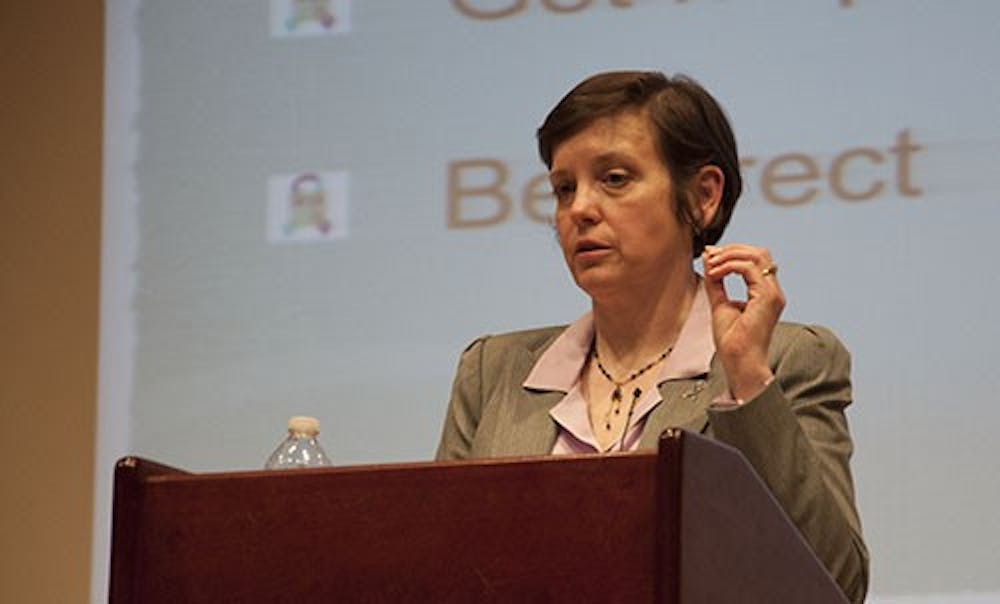Talking about suicide is one way a national suicide prevention advocate said students can help reduce the spike in suicides rates that occurs every spring and peaks in the summer.
Heidi Bryan told her story from the perspective of a suicide attempt survivor and a suicide loss survivor Thursday evening at Pruis Hall.
Bryan said she came from an abusive family and struggled with depression for as long as she could remember.
“From a very early age, I wasn't in love with living,” Bryan said. “There was nowhere for me to run to or escape to, the only thing I could really think about was heaven. From a very early age I remember wanting to die.”
The first time she seriously considered killing herself, she was saved by the beautiful view of the mountains where she grew up.
“As long as I can see beauty in this world, I will keep going,” Bryan remembered thinking, ”but as soon as I know longer see beauty in this world, that’s when I will check out.”
“That’s maybe something you could bring up to someone who is suicidal,” said Shannon Clem, a junior psychology major. “Do you still find beauty? Do you still find enjoyment in something? I’ve gone to a lot of these talks, but [I’ve] never actually heard that said.”
Bryan said she went on to struggle with alcoholism, extremely low self esteem, an abusive relationship, multiple psychiatrists, antidepressants and continuing suicidal thoughts.
“I felt like I was too sensitive, I felt like I wasn’t meant for this world, like my nerve endings were on the outside of my skin instead of the other way around,” Bryan said. “I would just start to berate myself... It was this choir of critics that was constantly singing in my head. If that’s not pain, I don’t know what is.”
It wasn't until her brother took his life that she realized it was not an option for her, Bryan said. She wasn't even sure if she loved her brother when he died, and she still felt like she had been hit with a two by four, so she couldn't imagine how his wife and children felt.
“[Mental illness] tells you things like, ‘They are better off without you, they don’t need you.’ And you listen to them,” Bryan said. “If he were alive I would tell him, ‘You were wrong, we are not going to get over this.' Suicide [was] no longer an option for me. I was sentenced to life.”
Bryan said now she has been properly diagnosed and has a good psychiatrist. Although she is not perfect, Bryan said she now takes care of herself and approaches her suicidal thoughts like a chronic disease.
“I gave up drinking and smoking, I’m not giving up chocolate,” Bryan said.
Bryan said risk signs to look for in friends include increased use of alcohol and drugs, isolation, talking about being a burden and feeling helpless.
“Suicide has a ripple effect, well so does suicide prevention,” Bryan said. “It’s not rocket science. Ask an indirect question and you will get an indirect [answer]. Be the friend and the person you want to be. Get help with the helping, but you can do it.”
Emily Bess, a senior speech pathology major, said she was able to connect with the event on a personal level.
“I have been dealing with an anxiety disorder for a couple months, and there were a lot of points that she said that I could really relate to,” Bess said. “Hearing that from somebody else just really helps because you’re like, ‘Hey, that’s like me.’ Hearing her points and how she got through it was really helpful to me."





